What's next after NI's public sector strike?
- Published
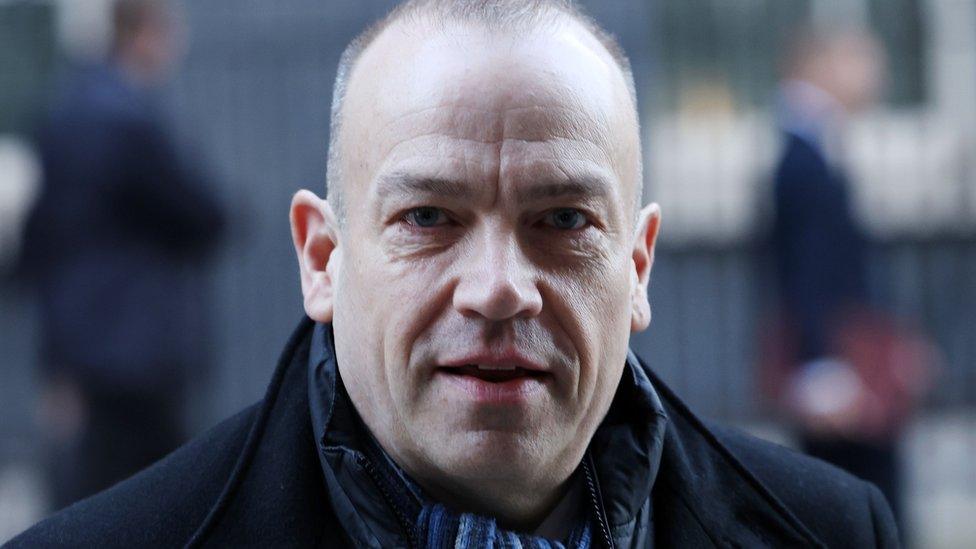
Chris Heaton-Harris spent part of the week in London where he attended a cabinet meeting in No 10
He may have been beyond the earshot of the picket lines and rally platforms but Secretary of State Chris Heaton-Harris heard the message loud and clear.
He spent Thursday in London while his name echoed out from every union rally across Northern Ireland during the biggest public sector strike in decades.
He wasn't around to respond to the hail of criticism but he did issue a statement making it clear the money to resolve the public sector pay dispute remained on the table if only the Democratic Unionist Party (DUP) would end its Stormont boycott.
That now appears unlikely so the focus will remain on the secretary of state as the man who has the cash and who accepts the need for pay parity across the UK.
Strings attached
But the picture he insists is not that simple.
The £580m earmarked for public sector pay is locked into the wider £3.3bn financial package for a returning Northern Ireland Executive.
According to Mr Heaton-Harris, it cannot be decoupled which is what the politicians and unions have called for.
That is because the financial package comes with strings attached.
In return for the £3.3bn injection, a returning executive would need to set out a credible spending plan complete with revenue-raising measures.
Without ministers in place to draw up that plan and make those decisions that key condition can not be met.
That, it seems, is a deal breaker for the Treasury.
Unless the executive is restored the package, including the pot for public sector pay, can not be cashed according to Mr Heaton-Harris.
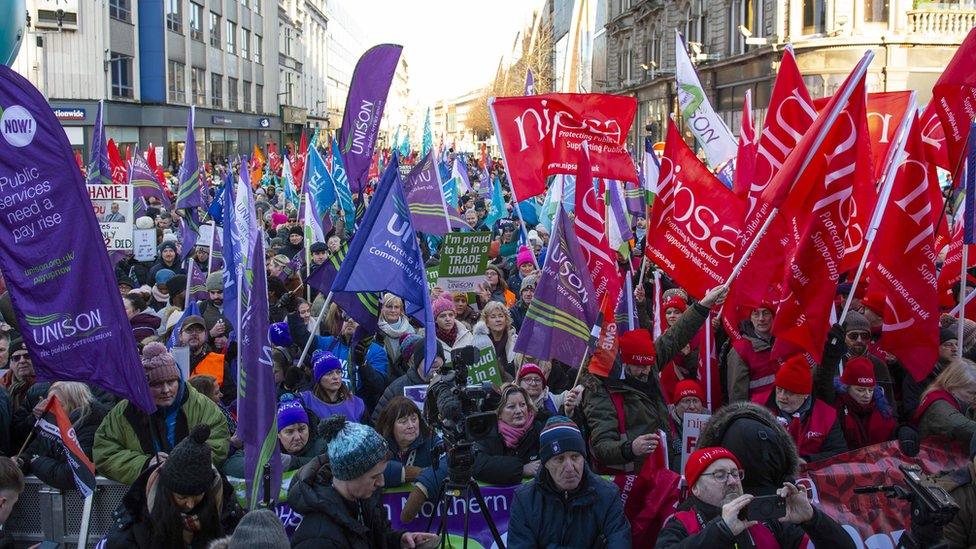
Striking workers attended a union rally in front of Belfast City Hall on Thursday
As one government source said: "Hollowing out the financial package is not an option.
"Demands to release the public sector pay money this week could be followed by demands to release the extra money for hospital waiting lists next week."
In the coming weeks the secretary of state will bring forward primary legislation at Westminster to reset the assembly election clock and he will also make plans for a budget bill.
Ideally it has to be through Parliament for the start of the financial year on 1 April.
He has already warned the parties the financial outlook is bleak and his calculations will not include any of the £3.3bn package offered for Stormont's return.
That will mean more pressure on public services with a massive overspend which will need to be factored in.
There will also be no extra money to meet the public sector pay demands without robbing resources from elsewhere.
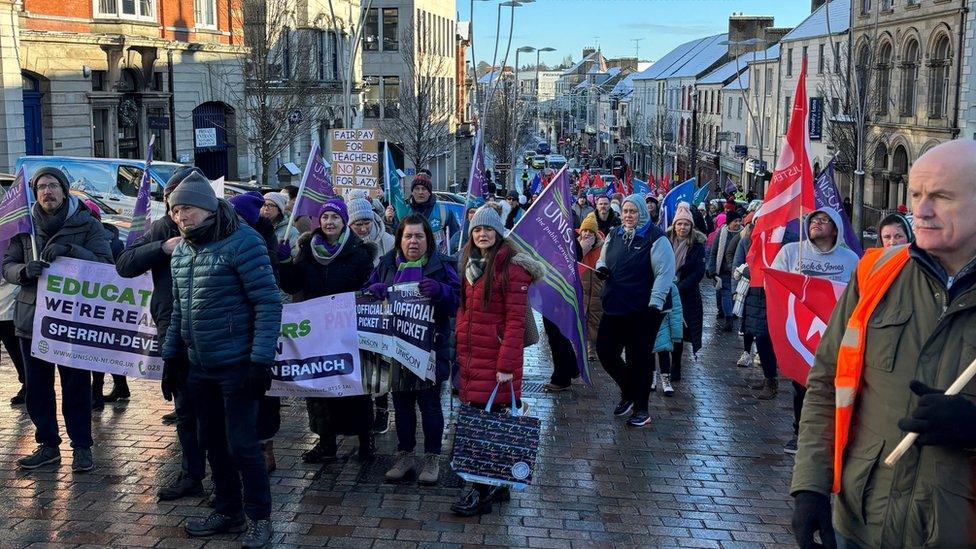
Rallies were held across NI on Thursday, including this one in Omagh
That figure is likely to well beyond the £580bn earmarked in the financial package which was only to cover one year and which will become a reoccurring financial burden for any future executive.
Also expect the secretary of state to set out how decisions are to be taken in the absence of an executive.
In a statement issued just as the strike ended Mr Heaton-Harris said he would support civil servants to "manage the immediate and evident challenges they face in stabilising public services and finances".
The permanent secretaries who have been running Northern Ireland since the executive collapsed have "maxed out" on their decision-making powers.
That means we could soon move to a "hybrid" system of government where the secretary of state will have the power to "reach in" to make big political decisions.
But having that power and using that power are not the same.
So don't expect Mr Heaton-Harris to have his finger prints on big decisions.
They are likely to be parked awaiting the arrival of a new executive.
He plans to adopt a "pragmatic" approach which is code for more hands-off than hands-on.
In the meantime he will hold onto the hope the DUP will take the big decision and end its Stormont boycott.
But it is a hope very few others now share.
- Published18 January 2024
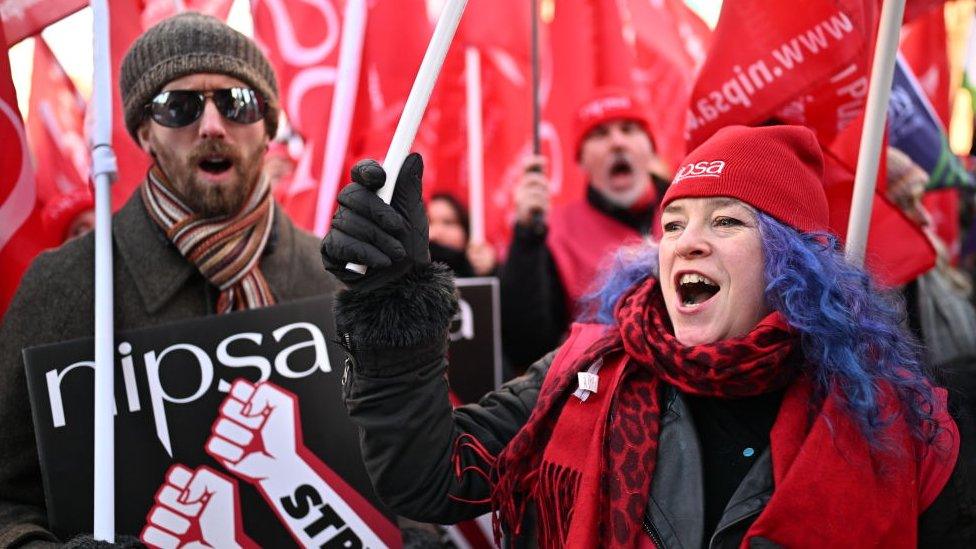
- Published18 January 2024

- Published15 January 2024
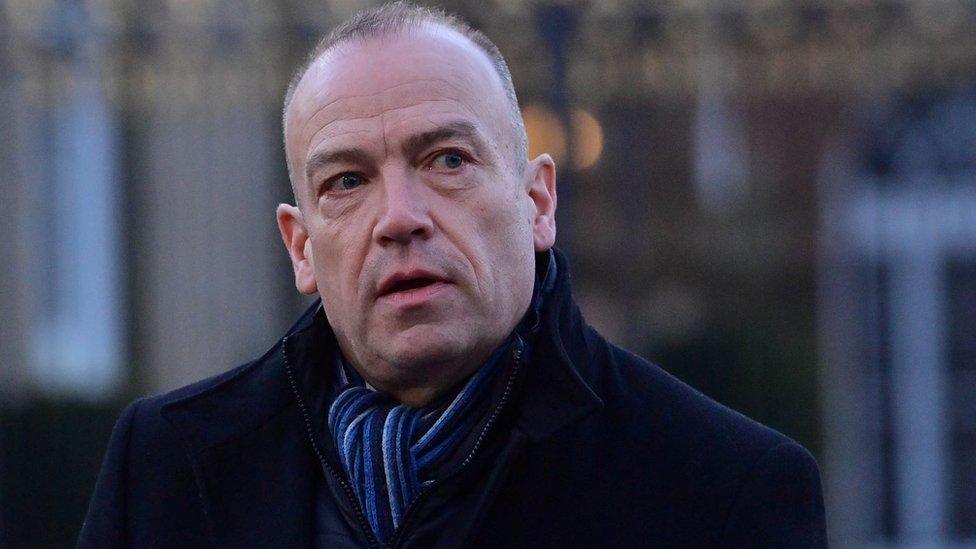
- Published18 January 2024

